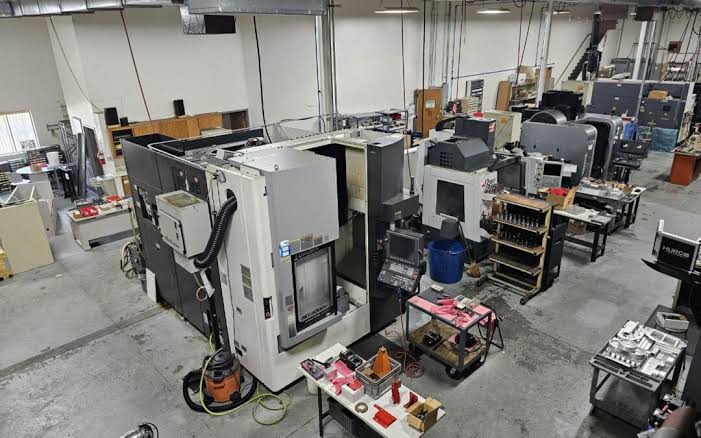Industrial equipment auctions have become increasingly popular in recent years as a way for businesses to acquire used machinery at a lower cost. These auctions provide a platform for sellers to dispose of their surplus equipment and for buyers to find quality machinery at a fraction of the original cost. The process of buying and selling through industrial equipment auctions is straightforward and transparent, with all transactions conducted in a public setting.
One of the benefits of industrial equipment auctions is the wide variety of machinery available. From construction equipment to manufacturing machinery, auctions offer a diverse selection of equipment to fit the needs of any business. Additionally, auctions provide an opportunity for businesses to acquire high-end equipment that may have been out of reach due to budget constraints. This can be especially beneficial for small businesses that are looking to expand their operations without breaking the bank.
Another advantage of industrial equipment auctions is the transparency of the process. All transactions are conducted in a public setting, which ensures that buyers and sellers are aware of the fair market value of the equipment being sold. This transparency also helps to prevent any fraudulent activity, as all bids and sales are recorded and can be easily traced. Overall, industrial equipment auctions provide a cost-effective and transparent way for businesses to acquire the machinery they need to grow and succeed.
Types of Industrial Equipment Auctions
There are several types of industrial equipment auctions, each with its own unique characteristics and advantages. Here are the three most common types of industrial equipment auctions:
Online Auctions
Online auctions are becoming increasingly popular in the industrial equipment auction market. These auctions are conducted entirely over the internet, allowing buyers from all over the world to participate. Online auctions typically last for several days, giving buyers plenty of time to research the equipment and place their bids.
One of the main advantages of online auctions is that they are convenient and accessible. Buyers can participate from anywhere with an internet connection, and they don’t have to travel to a physical location to bid. Online auctions also tend to have a larger selection of equipment, as sellers can list their items from anywhere.
Live Auctions
Live auctions are traditional auctions that take place in person at a physical location. These auctions are typically held in a large warehouse or auction house, and buyers must be present to bid. Live auctions are often fast-paced and exciting, with auctioneers calling out bids and buyers competing to win the equipment.
One advantage of live auctions is that buyers can inspect the equipment in person before bidding. This allows them to see the condition of the equipment and make a more informed decision. Live auctions also provide a social aspect, as buyers can interact with each other and the auctioneers.
Sealed Bid Auctions
Sealed bid auctions are a type of auction where buyers submit their bids in writing, rather than in person or online. The bids are then opened at a predetermined time, and the highest bidder wins the equipment. Sealed bid auctions are often used for high-value equipment or for situations where privacy is important.
One advantage of sealed bid auctions is that they are confidential. Buyers can submit their bids without anyone else knowing what they are offering. This can be particularly useful for buyers who don’t want to reveal their bidding strategy to their competitors. Sealed bid auctions can also be less stressful than live auctions, as buyers can take their time to carefully consider their offer.
In conclusion, each type of industrial equipment auction has its own unique advantages and disadvantages. Buyers should carefully consider their needs and preferences before deciding which type of auction to participate in.
Preparing for an Industrial Equipment Auction
When it comes to industrial equipment auctions, proper preparation is key to ensuring a successful outcome. Here are some important steps to take when preparing for an industrial equipment auction.
Asset Valuation
Before the auction, it’s important to accurately value the assets that will be sold. This can be done through appraisals and market research. Having a clear understanding of the value of the assets will help in setting appropriate reserve prices and determining the starting bids.
Cataloging and Listing
Cataloging and listing the assets is an important step in preparing for an industrial equipment auction. This involves creating a detailed inventory of all the assets, including descriptions, specifications, and condition reports. This information can be used to create a catalog of the assets that will be sold, which can be distributed to potential buyers.
Marketing and Promotion
Marketing and promotion are essential to ensuring a successful industrial equipment auction. This involves creating a marketing plan that includes advertising the auction through various channels, such as industry publications and websites. It’s also important to promote the auction to potential buyers, such as equipment dealers and manufacturers.
In conclusion, preparing for an industrial equipment auction requires careful planning and execution. By following these steps, auctioneers can ensure that the auction runs smoothly and that the assets are sold for their true value.





